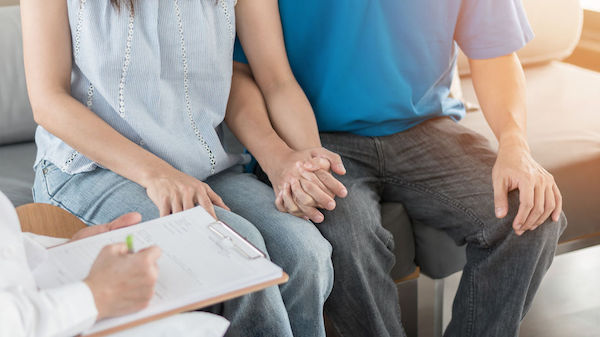Trichomoniasis is an STI (sexually transmitted infection) – also known as a sexually transmitted disease (STD) – that is caused by the parasitic organism Trichomonas vaginalis.

While it is more prevalent in women than men, men can become infected and pass the STI on to their sexual partners.
Trichomoniasis has an incubation period (time between exposure and infection) of between five and 28 days. If trichomoniasis is contracted in pregnancy, women may have a higher risk of delivering their babies prematurely.
What are its symptoms?
Trichomoniasis symptoms in women include the following:
- An odorous, off-colour (green or yellow) vaginal discharge that is profuse and frothy
- Burning and itchiness in the genitalia
- Pain during urination and intercourse
Symptoms in men include the following:
- A mild discharge from the penis
- A burning sensation during intercourse or after ejaculation
- Irritation inside the penis
Trichomoniasis may present with little to no symptoms in its early stages, and men may present with no symptoms at all while infected.
How is it diagnosed?
Trichomoniasis diagnosis will involve a physical examination by your doctor and will include taking a sample of vaginal fluid (in women) and urine (in men) to test for the presence of the parasite responsible for the infection. This parasite is more difficult to detect in men than in women. (Newer tests, known as antigen and nucleic amplification test can also be performed. These are faster and more accurate.)
What are your treatment options?
Trichomoniasis treatment typically involves taking one megadose of metronidazole or tinidazole. Both partners should be treated to prevent reinfection.
After treatment, abstinence for a week is recommended to allow the infection to clear. Alcohol should be avoided for 24 hours after taking metronidazole and 72 hours after tinidazole as it can cause severe nausea and vomiting. If there is a chance you may be pregnant, metronidazole is the only drug that should be taken.
It is advised that you go for testing after three months even if you and your partner are symptom free.
Please note that the genital inflammation that results from trichomoniasis may increase a women’s risk of being infected with HIV/AIDS if exposed.
If you are diagnosed with trichomoniasis or any other STI, it is advised that you inform your sexual partner(s) so that they can receive treatment.
Can it be prevented?
Reduce your risk of being infected with trichomoniasis by practising safe sex, and using a condom correctly. Other preventative measures include:
- Limiting the number of sexual partners
- Practising monogamy or abstinence
If you think that you may have been infected with an STI, avoid sexual contact and see your doctor. Having an existing sexually transmitted infection puts you at higher risk of HIV/AIDS infection.
How Clicks Clinics can help you
Unprotected sex increases your risk of HIV/AIDS. Clicks offers HIV testing and counselling at our clinics, call 0860 254 257 or book with Clicks Clinics online to make an appointment.
Shop online at Clicks.co.za for condoms
Don't be caught unawares – rather stock up on condoms here so that you can ensure you're practising safe sex at all times.
IMAGE CREDIT: 123rf.com
